El Paso Journey from Seattle Vs El Paso Journey from Ecuador
By Lori and Robert Fontana
The day before we left Seattle I took a walk through my favorite green space, the Ravenna Ravine. I walked slowly, knowing that Lori and I were going to be living in El Paso, a city in the high desert, close to our southern border which is crowded with buildings and has very few trees. I breathed in the cool air, listened to the wind and the birds, and savored the moment.
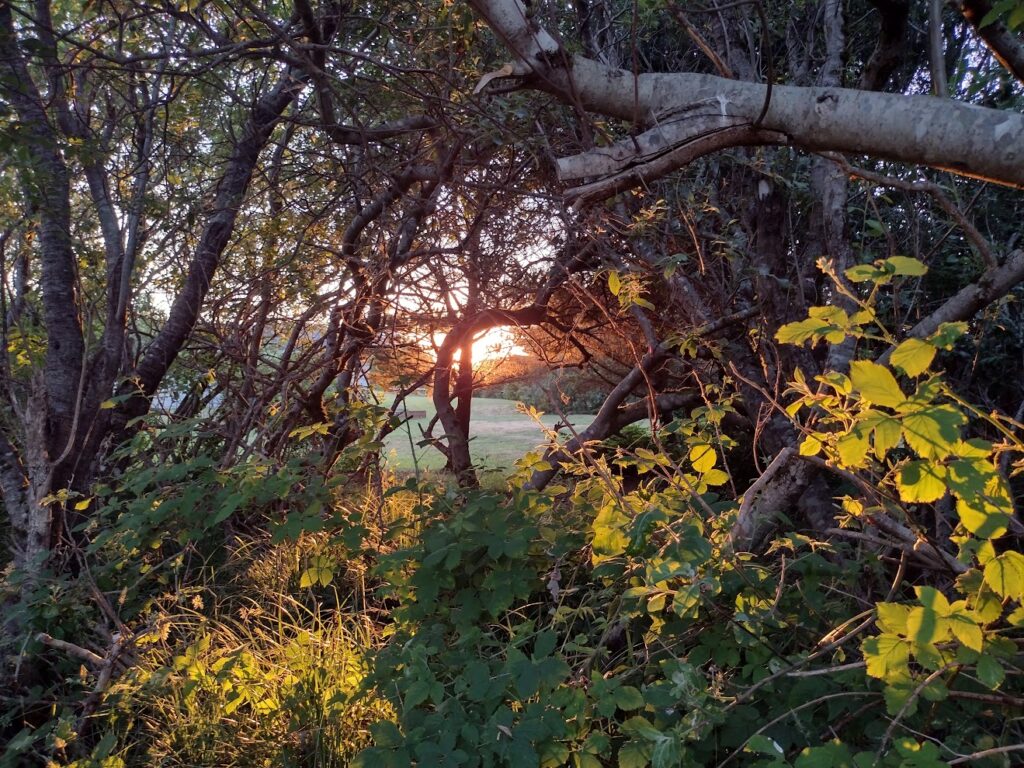
We then said our goodbyes to our children and grands, finished packing our car, and left early on the morning of May 29 for our four-day “grueling” drive to El Paso. First stop was Spokane, Washington, to see good friends Mike and Mary who served us a delicious homemade soup for lunch. We continued to Missoula, Montana, to spend the night with George and Mary. We laughed with their son Liam, engaged in world-saving conversations, enjoyed delicious home cooking and a good night’s sleep.
Then it was off to El Paso, driving through southern Montana and Idaho listening to upbeat tunes from “The Chicks,” Abba, the Beatles and praying with Michael W. Smith, Taize, and the Brooklyn Tabernacle Choir. We drove over the Continental Divide twice and saw magnificent scenery in the Rocky Mountains. We hit traffic passing through Salt Lake City just when we were feeling exhausted from driving. AGH!! Spent the night in Provo at a quaint Airbnb and then off again for another ten-hour day of driving (we had a few old bladder pit-stops), an overnight in Albuquerque, and then our final day, a short five hours to El Paso.
Of course, along the way, we had all the coffee, cold water, snacks – kettle-corn for when we were drowsy – and food necessary. We arrived in El Paso late Saturday afternoon and were welcomed with open arms by Ruben Garcia (director of Annunciation House), and other volunteers.
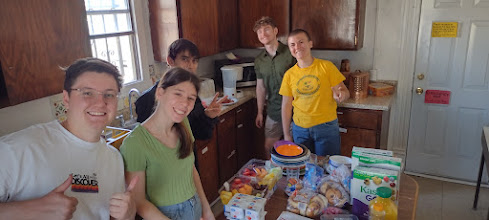
On Sunday we were given a short orientation as to what to expect at the A-House shelters and our forthcoming jobs. Then we were given the rest of the day off to recover from our travels. Whew, we needed that rest. Work began on Sunday.
In contrast, some of the guests we received just this week had very different travel experiences. They did not simply “leave” their homes, friends, and family members, they fled! They fled from Bolivia, and Ecuador, Mexico and Venezuela. Ruben asked us, “Why would a person flee one’s homeland?” He provided the answer: “Fear and Food.” Fear of the local criminal organizations and gangs threatening them with violence, kidnapping their children, and extorting them for money to leave them alone. They also leave because of the poverty they experience and the inability to work and properly feed their children.
The guests who arrived this week came from Ecuador, Venezuela, Bolivia, Mexico, and Guatemala. They arrived here via a combination of flying from their country to another one, e.g. Ecuador to El Salvador, and then boarding a crowded bus to Guatemala. Some must walk through Guatemala; others may take a bus or hire a driver to get to Mexico. Once in Mexico they still have 2,100 miles to travel to get to Juarez which is the sister city to El Paso. Several traveled through the treacherous Darien Gap – dense jungle that connects Colombia and Panama.
Once in Mexico they make their way north, walking, traveling in an open train car packed with dozens of other migrants, and some even in a freight container being pulled by an 18-wheeler truck. By this time, our guests who are traveling with children have little money, food, or water. They are in hot, cramped quarters. One woman told me that it was so hot in the container in which they were placed, that an older person died from the heat. She told me that the entire trip was very scary, especially for her baby with severe medical challenges.
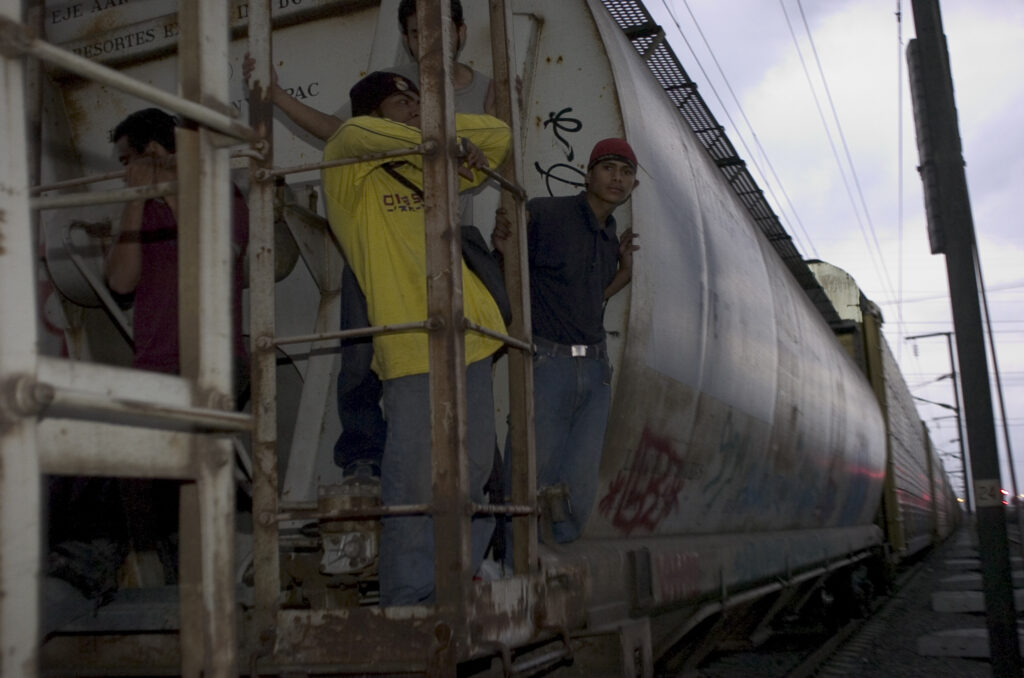
All of our guests reached the US – Mexico border at Ciudad Juarez. Some spent many days at a shelter in Juarez before presenting themselves at the border to US border patrol asking for asylum which is provided for by US law. Officers take the migrants into custody and do an initial interview to determine if they have a valid reason to seek asylum. If they do, they are given paperwork that gives them legal status for being in the United States.
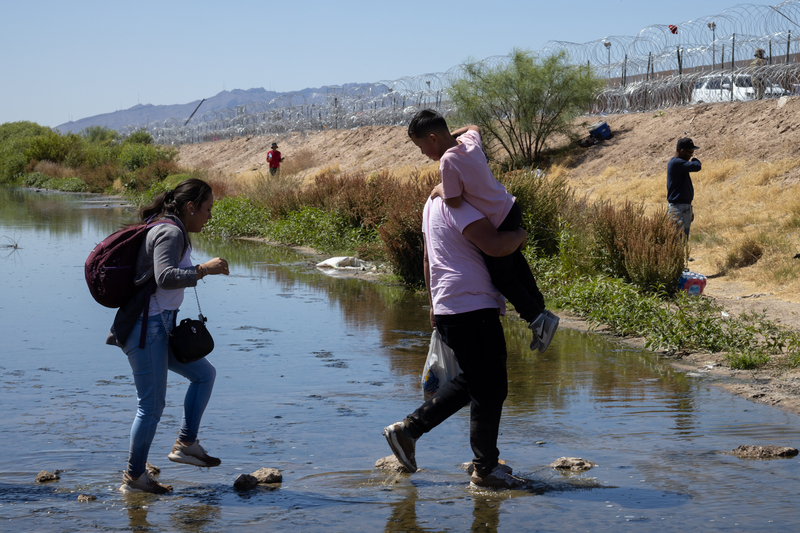
THIS IS IMPORTANT: MIGRANTS WHO HAVE ASKED FOR ASYLUM AND HAVE BEEN GRANTED PERMISSION TO BE IN THE US AND HAVE TO REPORT AT A FUTURE DATE BEFORE AN IMMIGRATION JUDGE TO REVIEW THEIR CLAIM FOR ASYLUM, ARE HERE LEGALLY. THEY ARE NOT “ILLEGAL ALIENS.”
Migrants who need assistance to get wherever they want to go in the US are brought to one of the Annunciation House shelter sites in El Paso by US immigration officers. This is not the end of their journey. Here we welcome them, give them cold water, coffee, and food and assist them in contacting their family members and friends in the States who are expected to purchase a ticket for bus, plane or train to get them to their final destinations. Most guests speak Spanish and very little English. Some speak a little Spanish because their primary language is an indigenous one. If necessary, they are welcome to sleep at the shelter until their travel arrangements are completed.
There are occasions when some migrants were injured in their crossing and need long-term medical care. These people stay at the house in which we are working, Casa Vides.
The guests we have received are all extremely grateful to be welcomed and assisted. The most moving time for us has been when they share their difficult journeys with us, and then when we join hands in prayer to bless them as they leave. Their journey has not ended until they have landed in Oakland, Nashville, Tallahassee, Arlington, etc. and are received into the arms of their loved ones.
Why do Ruben Garcia and the hundreds of volunteers who come here year after year do this work of hospitality? It is simple. They (and we) are guided by the words of Jesus who said that when we feed the hungry, welcome the stranger, clothe the naked, etc. we feed, welcome and clothe Jesus himself. (Matthew 25: 31-46).
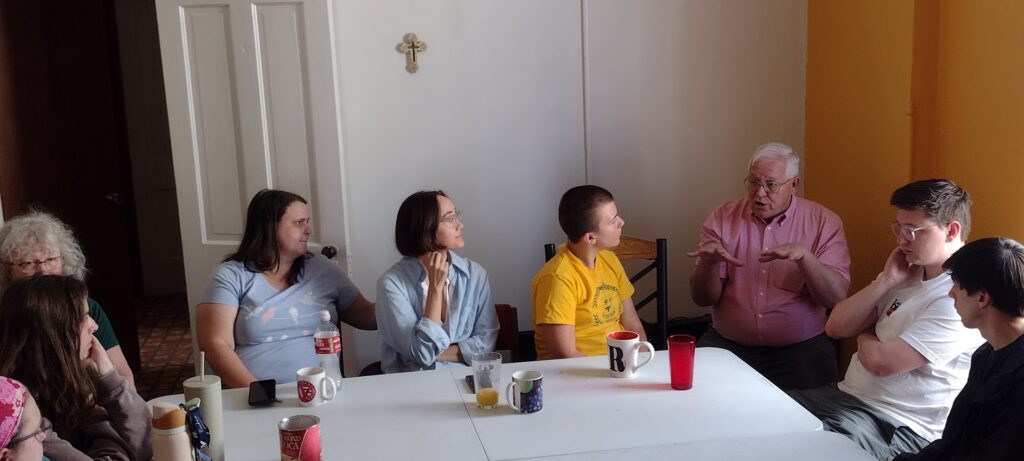
As we reflect on the many journeys that have brought each of us to Casa Vides in El Paso, we’re humbled. There is no comparison, really. We were traveling / journeying as a choice. We had resources: a car, food, money to buy whatever we needed; we knew exactly where we were headed and exactly how much time it would take us. Our migrant sisters and brothers have none of this certainty or security. They set out on a journey in desperation, and they hope they will survive. Our country’s immigration policies need great reform. But meanwhile, we also need those who will welcome the stranger at our door as Jesus commands.